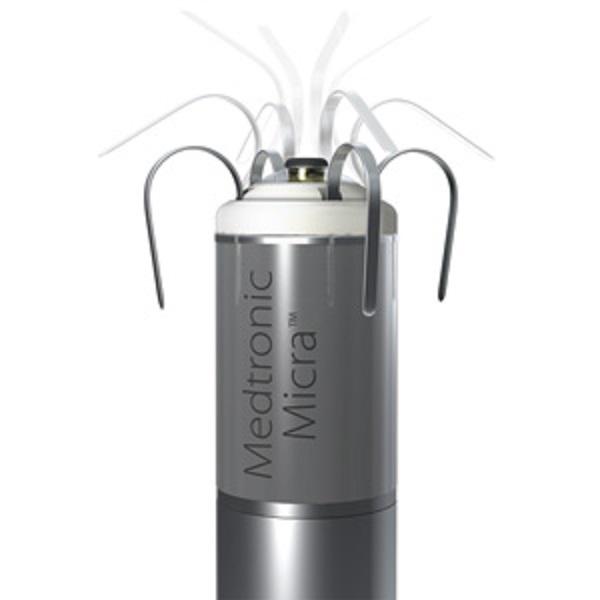-
Tips for becoming a good boxer - November 6, 2020
-
7 expert tips for making your hens night a memorable one - November 6, 2020
-
5 reasons to host your Christmas party on a cruise boat - November 6, 2020
-
What to do when you’re charged with a crime - November 6, 2020
-
Should you get one or multiple dogs? Here’s all you need to know - November 3, 2020
-
A Guide: How to Build Your Very Own Magic Mirror - February 14, 2019
-
Our Top Inspirational Baseball Stars - November 24, 2018
-
Five Tech Tools That Will Help You Turn Your Blog into a Business - November 24, 2018
-
How to Indulge on Vacation without Expanding Your Waist - November 9, 2018
-
5 Strategies for Businesses to Appeal to Today’s Increasingly Mobile-Crazed Customers - November 9, 2018
FDA approves new Medtronic 1-inch wireless pacemaker — Business briefing
Dr. William Maisel from the FDA stated that the device (the Micra Transcatheter Pacing System) is a welcome addition to patients who are thinking about using single-chamber pacemakers because Micra avoids problems tied to wired leads.
Advertisement
The FDA evaluated data from a clinical trial involving 719 and found that 98 percent of patients had a stable heart pacing for at least six months after the device was implanted, the health regulator said in a statement. The leads in a traditional single chamber pacemaker run from the pacemaker, implanted under the skin near the collarbone, through a vein directly into the heart’s right ventricle; the leads deliver electric pulses from the generator to the right ventricle and help coordinate timing of the chamber’s contractions.
The Medtronic Micra TPS has been given the green light by the United States Food and Drug Administration after it proved successful in a trial of more than 700 patients.
The Micra pacemaker is meant for patients with a common heart rhythm disorder called atrial fibrillation or those with other unsafe rhythm problems, such as bradycardia-tachycardia syndrome.
The FDA has approved a leadless pacemaker manufactured by Medtronic PLC (NYSE:MDT), making it the first approval of its kind. Dr. Dwight Reynolds, the chief of THE University of Oklahoma’s cardiovascular section stated that Mica is the transcatheter pacing solution that the medical industry has been waiting for. In the clinical trial, the Micra was successfully implanted in almost all patients, and met its safety and effectiveness endpoints by wide margins.
Medtronic said the Micra TPS is the only transcatheter pacing system to be approved for 1.5 and 3 tesla full-body magnetic resonance imaging scans.
Unlike older pacemakers which have wires that can cause complications, this new product is wireless.
Advertisement
At the hearing, the panel recommended rigorous training for clinicians implanting the device, as well as a national registry that would follow all patients implanted with the device for the duration of its battery life – six to 12 years. It reduced complications by 51 percent in comparison to traditional pacemakers. Medtronic said there were no dislodgments, no systemic infections and a 0.4% rate of system revisions.





























